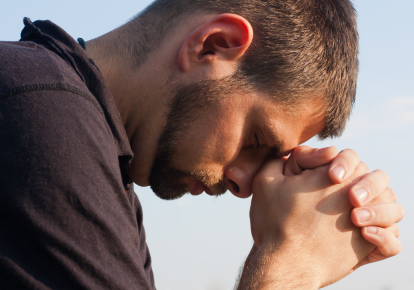Depression in Men, Counseling Available in Tulsa & Broken Arrow
By Alina Morrow, LPC-S, CAMS II, GC, CCTP
Disclaimer: The article below is for informational purposes only and should not be considered as direct advice, a personal diagnosis, or as an individual treatment plan. Always consult with a mental health professional or medical doctor if you have concerns.
Introduction and Overview
Men are considered less likely to be affected by depression than women. Statistics show that 1 in 10 cases of depression nationwide is a man. In the United States, approximately 7 percent (more than 6 million men) of the general population affected by depression are men, comparing with 12 percent for women. Men of any age can develop depression, but the risk increases as men get older. It is estimated that 40 percent of men between the ages of 40 and 60 will suffer from different degrees of depression.

However, prevalence differences between genders have raised two question for researchers:
- What causes lead to the gender difference, and
- Whether or not depression is indeed less common among men, or are men less likely than women to recognize, acknowledge, and seek help for depression?
Depression affects both sexes leading to relationship problems and disrupting every day life activities. Depression symptoms are similar in both men and women, the differences are exhibited in the different manner they are expressed.
Men, according to social education and pressure, tend to deny having problems because they need to appear strong. Being depressed is mostly considered a personality weakness. American culture considers that expressing feelings is a feminine trait, a reason why men's depression undergoes atypical signs and is difficult to recognize and properly diagnose.
Men choose to talk more about the physical signs of depression such as tiredness, pains and aches, sleep disorders, digestive problems, or show signs of irritability, impatience, restlessness, hostility toward family, friends or others, and lack of interest in past pleasant activities, rather than crying, being sad, or verbally expressing suicidal thoughts.
Men keep their feelings hidden, but display an aggressive and irritable behavior. One of the areas that men are extremely sensitive about is their sexual performance. Depression, unfortunately, is one of the disorders that interferes with this aspect, leading to a decreased sexual desire and performance. A majority of men perceive a decreased sexual appetite and performance as a sign of losing their manhood, rather than a medical symptom.
Men cope with depression symptoms different than women. Women express what they feel, while men try to self-medicate the symptoms by using drugs, alcohol, work, anger, lashing out, or promiscuous sexual behavior (rare). These behaviors (alcoholism, drug abuse, workaholism, or violence) camouflage depression and often make it worse.
Risk Factors for Depression
A man's risk for depression increases if:
- He has a family or personal history of mood disorders.
- He has an alcohol or drug abuse problem.
- He suffers from a chronic disorder such cancer, heart disease, or HIV.
- He is separated or divorced.
- He has a decreased sexual potency.
- He experiences a persistent occupational stressors.
Suicide
Left untreated, depression can lead to dramatic consequences such as suicide. The Centers for Disease Control and Prevention report that in the USA, men are four times more likely to commit suicide than women. Approximately 80 percent of those that commit suicide in USA are men. Also, men are more successful in committing suicide than women because they use lethal methods such as a gunshot to the head, rather than taking an overdose of pills. The suicide rate triples in middle aged men, and increases up to 7 times more in men over the age of 65. The risk for suicide is higher in a man with a history of suicide attempts.
See Also: General Symptoms of Depression
Related Information:
